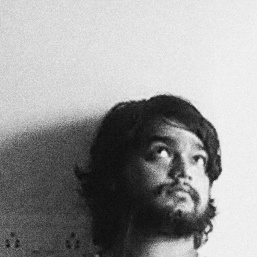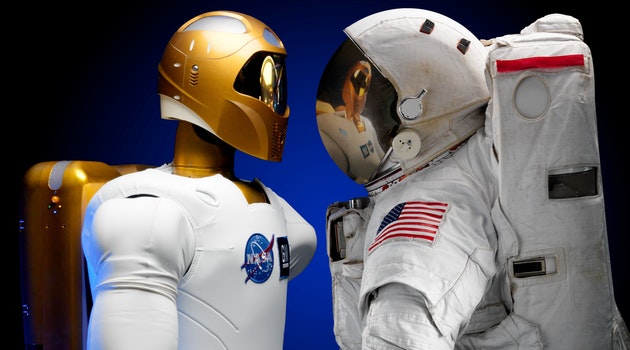It is impossible to deny that recent technological developments in biotechnology, cognitive science and “big data” infrastructure have made us, as a civilization and as artists, aware of all that is problematic in technology. We may call this movement toward introspection “post-humanism,” an exploration of technology’s advancements and controversies. This philosophy began as a niche within feminism from Firestone to Haraway, then existed in the cult realm of trans-humanism or as a science-fiction fixture.
Nate Pritts’ collection of poetry, “Post Human” (A-Minor Press, 2015), explores the terrain of living on the edge of what it means to be human. “Post Human” is divided into four sections with verses connected in one form or the other, whether thematically or in style.
The first section, “Pattern Exhaustion,” covers everyday life and the mundane. The narrator of the first section documents and archives minutia in various forms. This section is propelled forward by a sense of ennui while still making an effort to note small quirky habits and observations such as:
“I have learned that rain is easier
to deal with when it ruins you
completely.”
“I spend forty minutes
imagining what it would be like
to stand in the rain
but never consider going outside.
I write a note
to myself so I won’t forget
certain key data.”
“I check my email
for a message from you
twenty-three times
during a typical workday.
I’m too surly
& depressed about everything
about even my shirt.”
The section reads like a lover reliving old memories and patterns, as if mourning a loved one. Our habits may help us continue living during grief, and yet, so can breaking out of old patterns. Sometimes the way to keep living after a tragedy is to radically alter the network of relationships with everything around us. By delving into this conundrum we reach one of the limits of thinking that underlies the divide between the human and the post-human.
“Everything a pattern that can be
discerned or else
everything a pattern
because we say so.”
The above concern of the limits of human perception/language, a key concern in much of the philosophical discussion around ‘post-human’, is revisited later in the collection again.
In the second section, “No Filter,” we first encounter the narrator’s cynicism with respect to technology:
“Every person that I ever loved
Is just a trace on the screen today
Just a ghost in my soul
So I need to know
do I feel what I feel
When the machine tells me to?
When can I believe in myself?
Help me believe in myself”
Here the narrator laments the lack of a belief-system while at the same time wondering if feelings do indeed travel across the technological network.
“Dark mornings
abound crowd the season.
You can’t distinguish
the noise of wind
the rilled air against leaves
from within the sinister engines
of the rain.
I am recording
the final experiences of a human
on this planet entangled
with nature.”
The narrator remains ambivalent about man’s relationship with nature and machines in this section, instead recording the events of the present like an archivist. The narrator does pass overt value judgments after a few pages, noting the existence of a consumerist culture and capitalism, as well as their environmental impacts:
“Here I am at the table, these chairs,
all painted fresh to look worn.
They blend in with this present age
of getting whatever you want
even when you have no idea what that is.
We generate more waste.
The days will eat you alive if you let them.”
The third section, “Ship of Nails,” names the concept of the “post-human” outright. The narrator in this section isn’t just a human but a system:
“I am a closed system
With unwanted precognition
A broken system in need of repair”
Even poetry is not idealized; there’s no romanticism to be found in this section:
“Inner wisdom activates you
Awakens you to yourself
The benevolence of the market god
The quiescence of morning as it unfolds
Watercolor sky above
So soft So pretentious
My thoughts”
Language is no more a medium worthy of attention, a machine that merely generates artifacts. It is crude and not visceral enough to explicate the complexity of the systems around us:
“Participates in life
Is memorable
Events are changing
Feelings are changing
Events suffer powerful feelings
A verbal artifact makes patterns
I mean A linguistic artifact
Words on paper
I am suffering powerful feelings
In words on paper
I live viscerally In thought
Live apart from all this own crude matter”
The fourth section, “Life Event,” turns from deliberate cynical meditation back to the mundane, taking us back to where the first section began. But now the narrator is enriched by the journey and aware of the banality of much of the meaning-making systems that we humans are equipped with:
“You’ve spent so many nights
trying to learn a shape
you thought you could hold
an object you thought you could give a name to.
So many miles of night & still
no name for it no understanding.
My poetry remembers & forgets
this one self
the way my life has learned routines
only to leave them
to lose faith
while my body empties of what it collects.”
There are moments of sheer nihilism, overwhelming the narrator:
“We’ve had it wrong. Life isn’t accumulation.
Every day is a slow destruction.”
But the section ends with an image of stillness and indifference, a position of deep resignation. We are no longer led by the lovelorn early narrator, and do not revisit any deliberation on the nature of post-humanity:
“It’s the kind of air that feels like rain
& when it starts I’ll go inside
to watch it. I’ll just watch it.”
Quotations from Thoreau and Upanishad are placed in the text to guide readers through the journey of this collection. The first and the fourth sections consider the slow-paced quotidian life and the way it offers us a counter-view to the breakneck speed that we are gathering as a civilization. Thoreau and Upanishad take a romanticist view of the world, especially considering that the latter is a spiritual or religious text. Our narrator takes an ambivalent approach when defining the post-human, yet invoking these romanticist notions gives a crypto-romanticist undertone to the text.
The post-human, for Pritts, is not simply a new age that needs to be dealt with, nor is it welcomed warmly. The future is a milieu from which one can chose to withdraw.
 Debarun Sarkar is a writer currently based in Calcutta, India.
Debarun Sarkar is a writer currently based in Calcutta, India.


0 comments on “Hidden Romanticism in the “Post Human” Poetry of Nate Pritts”